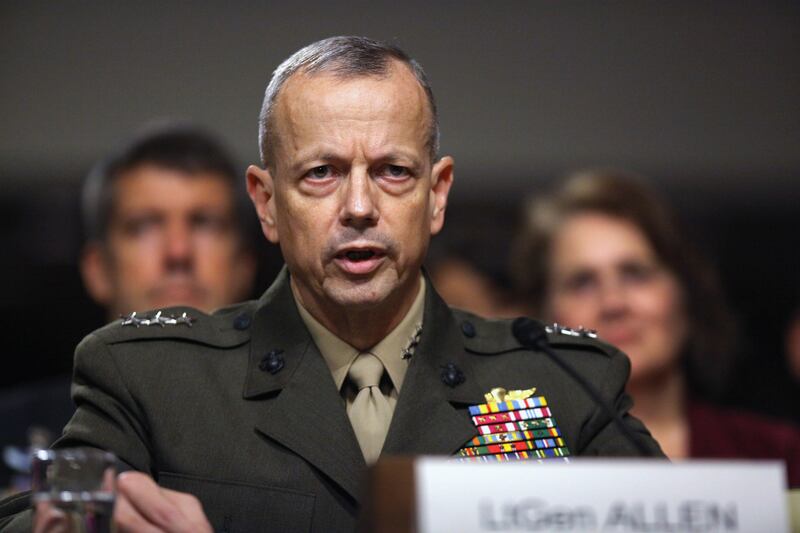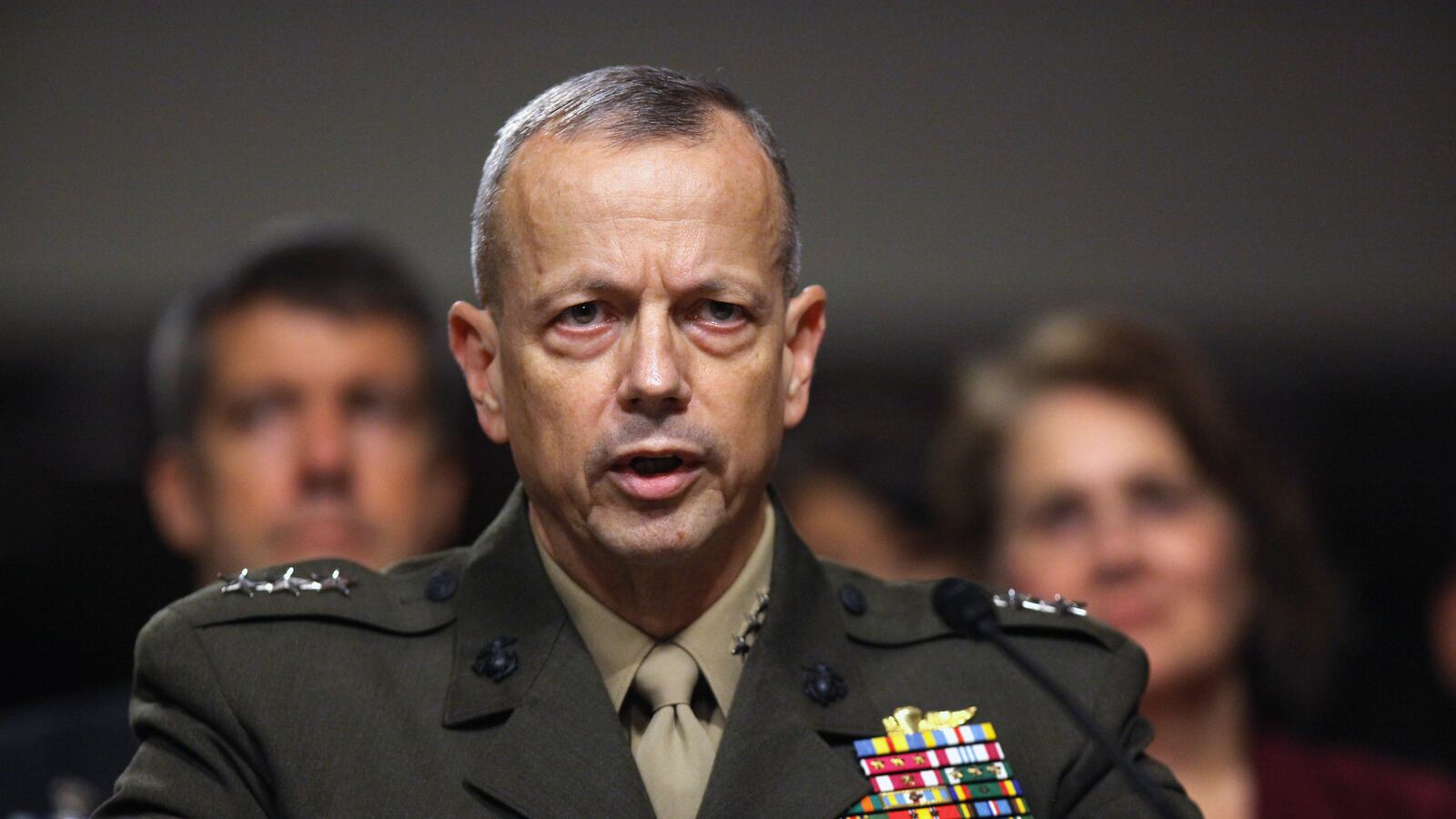Retired Marine General John Allen, who commanded all American and NATO forces in Afghanistan until early this year, praised the security agreement reached today by Afghan and U.S. negotiators. The deal ensures that a residual U.S. force will remain in the country after the American combat mission comes to a close at the end of 2014. It is unclear what the size of that force will be, though it is expected to be somewhere in the range of 10,000. Going forward, U.S. military personnel will continue to train, equip, and provide other forms of assistance to their Afghan counterparts. They will also continue limited counterterrorism operations in the country.

Intense diplomacy in the last few days resolved a number of late snags that threatened to unravel the agreement. Among them was an apparent request that President Obama issue a letter of apology for the deaths of Afghan civilians at the hands of Western forces. In confirming the bilateral security arrangement on Wednesday, Secretary of State John Kerry said there will be no U.S. apology.
The agreement still has to be approved by a Loya Jirga, a traditional council made up of more than 2,500 citizens from a cross-section of Afghan society. The Loya Jirga's blessing is by no means assured, but some American officials who've closely observed Afghan President Hamid Karzai say it is unlikely he would bring the agreement to the council without being confident of a positive outcome.
In an interview with The Daily Beast, General Allen said the agreement will help Afghanistan stay on a path toward relative economic and political stability. And crucially for Allen, who led the U.S. military effort there from July 2011 until March 2013, it will help maintain the gains made by American troops at considerable cost. "The agreement respects the sacrifice of our forces who served in Afghanistan.” Allen said, “and it acknowledges that we as a people and the Afghan people are bound together in a common future."
Marc Chretien, Allen’s former political adviser in Afghanistan, concurred: “This is the responsible way to leave Afghanistan,” he said, tacitly acknowledging that for months the negotiations were deadlocked, during which time the U.S. threatened a “zero option”: no agreement and no troops left behind. “An abrupt departure would have made a mockery of the sacrifice of those who served there. A cut-and-run only increases the odds of failure, whereas a measured withdrawal as envisioned at this point in terms of assistance to the Afghan forces makes sense from a stability point of view.”
Allen also cast the accord as a strategic win for the U.S., bucking pressure from Iran and other regional players who would have liked to see America's involvement in Afghanistan dissipate altogether. "That we agree as two people to stay together and that some of our forces are going to stay there is a victory by virtue of the regional pressures that would have had the Afghans throw us out of the country," he said.
Allen also sees the agreement as a major achievement in Afghanistan's historical development, especially in light of the country's deep-seated suspicion of Western powers, a legacy of its colonial past. "This is the first time in their history that the Afghans have asked a foreign power to remain in their country," he says. "That is huge."
Allen had quietly but persistently advocated for an agreement that would leave behind a residual force large enough to secure significant parts of the country. In a think-tank report he co-authored earlier this year, he concluded that 13,600 U.S. troops would be needed, as well as an additional several thousand non-U.S. NATO troops. The White House was more comfortable with a number closer to 9,500, according to a senior administration official.
In the 20 months that Allen served in Afghanistan, he was no stranger to the duplicitous and sometimes treacherous ways of that country’s political class. So he could be forgiven for being cynical about the prospects of the agreement surviving Afghanistan’s ancient and mysterious Loya Jirga process. And yet as he drove home on Wednesday from his Pentagon office, where he is currently serving as the U.S. security envoy for the American-brokered Israeli-Palestinian peace talks, he seemed upbeat, even bullish on the deal’s chances.
“We should not be surprised by or alarmed at the fact that the Loya Jirga is going to examine this agreement,” he said. “It’s a natural part of the Afghan approach to politics. The logic of our relationship and our shared sacrifice over so long leads me to be optimistic that the Loya Jirga will come to the right conclusion.”





